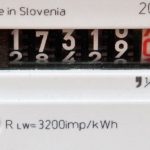New economic horizons for Portugal
The former minister of State for the Economy and Digital Transition, Pedro Siza Vieira explained why Portugal was the place for investors in his opening address to the Portugal Real Estate Summit 2020 on September 21 at the Hotel Palácio Estoril.
With storm clouds gathering in Europe and further afield it is difficult for any country to make accurate economic and business forecasts for the future, particularly for the next few months.
Instead it is more reliable to look at overall trends because the long and mid-tern trends are there, and even if businesses and policy makers have to take snap decisions on a daily basis in reaction to external circumstances (inflation, soaring raw materials and energy costs), one should “never lose the focus on where we are heading”.
This was the opinion of the former Minister of State for the Economy, Pedro Siza Vieira who spoke about three topics centred around the ‘End of the Great Moderation’.
“The economic landscape which we got used to over the past 30 years, the Neo-liberal landscape, are drawing to a close”, said the ex-minister.
There are some definite trends that will impact on the global and European economies and which will inevitably affect Portugal.
The Great Moderation was a term coined by Ben Bernanke, given to the period of decreased macroeconomic volatility experienced in the United States from the mid-1980s to the financial crisis in 2007.
During this period, the standard deviation of quarterly real gross domestic product (GDP) declined by half and the standard deviation of inflation declined by two-thirds, according to figures reported by former US Federal Reserve Chair.
The Great Moderation can be summed up as a multi-decade period of low inflation and positive economic growth.
“The Western economies had reached the point where they could master the economic cycle with low inflation, stable growth, low interest rates, a period when despite some hiccups along the way, economise could expect future growth.”
“This is the world in which we grew up in the late 1970s and early 1980s. We saw the end of inflation and privatisation, deregulation, and with the end of the Cold War the implementation of global institutions that fostered global trade and movement of capital as China was coopted into the global trade system through the WTO”, he said.
Goods could be produced in the cheapest locations ad with an efficient transportation and logistics system, this brought down the price of manufacturing and distribution costs, creating a mass consumer market around the world.
The word was enable to survive the financial crisis in 2007 and 2008 because the overall conditions still allowed the model and cycle to continue.
Negative or very low interest on credit had been prevalent since 2015 and we had come to believe that this was entirely normal. It’s not.
In 2006 with market euphoria, returns at the time were in excess of 4%. So the last few years of low yields on loans has been “strange”.
“This great moderation is probably disappearing before our eyes. In 2017 Europe was concerned it had lost the technological edge which was now dominated by China and the US. Europe’s specialisation in industrial technologies was becoming obsolete”.
Europe was becoming uncompetitive and could not generate the resources to provide the standards of welfare that its countries had become accustomed to.
Second, Europe started to realise it was completely dependant on other regions of the globe for critical raw materials and components which in a crisis would mean Europe would lack the ability to operate as had been the case.
Third, and even more concerning, we thought we could continue to import from around the world because the geopolitical system was safe and there was trust in the worldwide economic system and the protection of US financial and political hegemony.
That changed from 2016 when Trump raised tariffs on imported goods, interfered with the World Trade Organisation’s effective work, and even discussed changing NATO’s Article 5 which meant an attack on one member was an attack on all.
All these factors created the notion of an economic and strategic fragility in the Western commercial and defence system.
The risks to extended supply chains became apparent with Covid-19, followed by the realisation of Europe’s energy dependency with the War in Ukraine which has subverted the older created after World War II.
“Leaders are taking decisions which go to the heart of conditions which allowing this Great Moderation to happen”, says Vieira.
Currently the US and the EU have taken action in terms of industrial policy, which in unimaginable since 1945.
The US has approved an Inflation Reduction Act with US$750Bn to support new emerging industries and technologies. Also, it has passed the Micro Chips Act with US$52Bn in grants for the construction of microchip factories and research labs in the US.
“Steps are being taken to reduce these dependencies and to make sure that we are better able to cope with the risks and tensions that global supply chains have created”.
“This is happening fast and global trust which had supported the global economy is probable disappearing”, warned the ex-minister of the Economy.
Pedro Siza Vieira said that in the coming years governments would have much greater impacts and influence on economies with changes and reviews to competition policies in the EU with an increasing investment in science.
There is a review in EU trade policy, with a review of trade agreements across the globe to ensure the local markets are not flooded with goods produced by manufacturers that do not meet social and environmental standards in counties like Bangladesh and China.
As for Portugal, the ex-minister pointed out that the economy is growing (6.4%-6.7% for 2023) — the highest in the EU. It has been growing above the GDP average since 2016, the exception being 2020 because of Covid-19.
The strong economy is being led by investment and exports. In 2011, the value of exports was equal to 30% of Portugal’s GDP.
Between January and July 2022, the value of exports was 47% of GDP. Exports are having more weight in the economy than they used to have.
“More firms are exporting more products to more markets with the result that the Portuguese economy has been gaining market share in the markets where they compete, while specialisation is becoming more mature”.
“Employment in Portugal is very strong, with more people working right now than in our entire history”, stresses Vieira.
This can be seen in the country’s ability to attract foreigners from all walks of life.The number of immigrants in H1 of 2022 is equal to the entire number of immigrants in 2019. (a record year)
Families and corporations are in a very good shape, family and company savings have been massive over the pat two years and family (+7%) and company (+11%) bank deposits are at their maximum ever. Equity of Portuguese firms at the end of 2021 was 41% of their assets which is above the EU average. There is scope to withstand further crises.
As to the strength of the public finances, often criticised by ratings agencies and economists, Pedro Siza Vieira said the focus was on reducing it, so that currently the spread between interest rates on Portuguese sovereign bonds and German sovereigns has remained stable, whereas the gap between that and other European countries had widened.
“This does not mean that we will not face difficult times, but it means that we are better capable of meeting them than 12 years ago during the sovereign debt crisis.
“When we look at the trends I think we are in a very good position to take advantage of the opportunities that changes and turmoil create.”summed up the ex-minster Pedro Siza Vieira (37.40)
Text and photo: Chris Graeme










